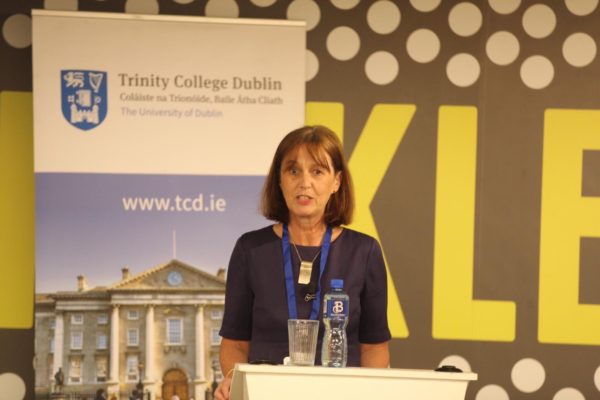Trinity has today launched its third global relations strategy, aiming to increase engagement with students and universities around the world and providing more opportunities for students to study abroad.
The strategy aims to expand Trinity’s partnership with universities around the world, with a focus on increasing the number of students who study abroad.
Partnerships with international universities will follow the model of Trinity’s dual BA programme with Columbia University, launched last year. This programme sees students study for two years in Trinity followed by two years in Columbia, emerging with two undergraduate degrees.
The new strategy aims to develop similar partnerships with universities in Europe and non-EU countries. Last month, Trinity joined a European Universities Network Initiative with four other European universities, including the University of Barcelona, Utrecht University, the University of Montpellier and Eotvos Lorand University, establishing the Charm European University (Charm EU) group. These European university networks enable students to obtain a degree by combining studies in several EU countries.
Trinity will also continue to work with universities in the League of European Research Universities (LERU), which counts the universities of Oxford, Cambridge and Copenhagen among its members.
College’s international foundation programme, delivered in conjunction with the Marino Institute of Education, will also be expanded. This year-long full-time pre-undergraduate programme equips future undergraduates with the appropriate English language, mathematics and academic skills specific to their subject of choice, to prepare them to undertake degrees at Trinity. The programme has already witnessed significant success, with applicants from 53 countries applying this academic year.
During the duration of the programme, Trinity’s overall student population will increase by 3,000 students, including students from Ireland, the EU and non-EU countries.
In a press statement, Provost Patrick Prendergast said: “For Trinity, being a global university is about pursuing strategies that engage Trinity with the world. Our global engagement in this strategy is holistic. While there is a focus on recruitment, there is also a focus on further developing partnerships with universities around the world, particularly in Europe and increasing opportunities for student mobility and enriching their education.”
Trinity also aims to increase the number of undergraduate students engaging in mobility from 30 per cent to 50 per cent over the duration of their study. This will mean a significant increase in the number of student exchange agreements and the number of students participating in the main programmes.
Speaking at the launch, Prendergast described global relations as something “embedded in Trinity’s DNA”, describing how “Trinity’s community is at once wider and closer than it was a decade ago” as a result of continued focus on global development.
In a press statement, Vice-President for Global Relations Prof Juliette Hussey said: ““The focus of the next five years will be to deepen relationships with universities worldwide and secure further opportunities for our students to go overseas. We want to support our undergraduate students to spend time in study, research or clinical placements abroad. In a world where our graduates will need to address many global challenges it is important that their university education equips them with the ability to work with other cultures and countries.”
Speaking at the launch, Hussey told those gathered: “Global relations are just one part of the overall cog that will allow us to see the same success as we’ve seen in the past.”
Also present at the launch was Columbia’s Prof Victoria Rosner, who discussed the success of the university’s partnership with Trinity. “Universities may be among the best positioned institutions to model global relations that are mutually productive and democratic”, said Rosner.
Trinity’s first global relations strategy was launched in late 2012. Under Prendergast’s provostship in particular, Trinity has sought out more partnerships with foreign universities as part of an ambition to become a more globalised university. The College has consistently hit targets of international student numbers laid out in the strategies.







